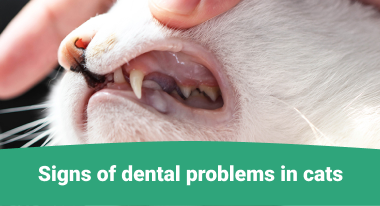Table of Contents
Introduction
Many cats may have itchy skin all year-round. It is a common skin infliction among cats. Indoor cats may be less prone to this as they are less exposed to allergens and other causes of itchy skin. Veterinarians call it feline pruritus.
However, for the overall well-being of cats, pet owners must stay vigilant and look out for any symptoms of itchy skin among their cats.
In this article, let’s discuss various aspects of itchiness in cats. The article describes the symptoms, causes, diagnosis, treatments, and preventive measures for itchy skin among cats.
What are the Signs and Symptoms of itchy skin in cats?
Whenever you notice excessive scratching among your cats, it indicates feline pruritus – a skin disease when the cat feels itchy. Let’s take a glance at other signs and symptoms of this skin issue among cats:
-
Scabs or bumpy skin
Bumps on the cat’s skin are one of the most annoying signs of a cat’s itchiness. You notice bumps with redness beneath a particular part of the cat’s body – or sometimes everywhere. Regular grooming may help you recognize this sign early.
-
Bald patches on the cat’s skin
You can notice hair loss and flaky skin on some parts of your cat’s body. These bald patches may also have reddish bumps called feline dermatitis.
-
Changed coat color
You may notice skin scrapings and a changed color shade of your cat’s coat in some portions.
-
Excessive licking
Due to itchiness, your cat may have irritated skin and tends to lick it again and again.
-
Dark, Thickened Skin
Your cat keeps itching its dry skin, and the skin may turn dark and thick.
-
Wounds on skin
Excessive scratching may cause injuries to the cat’s itchy skin.
What are the causes of a cat’s itchy skin?
Pet owners may overlook itchy skin symptoms if they have an indoor cat. However, a cat’s skin is extremely sensitive to allergic reactions and other elements causing itchiness.
Insect bites
Insect bites are a significant cause of itchy skin among cats. Keeping your cats safe from flea infestation is essential, especially during summer. Even flea dirt or flea saliva causes allergic reactions. The scientific term for such an allergic reaction is feline dermatitis.
Other parasites like dust mites and ear mites may cause itchy skin in your cat. In some cases, insect saliva, which is difficult to notice with a naked eye, may cause skin itchiness and irritation.
Food Allergies
Cat owners are sometimes unaware of an allergic response to some cat food. If your pet’s diet has allergens, it leads to food allergies. Sometimes, food allergies lead to itchiness in the cat’s skin. If your cat’s diet lacks essential fatty acids, skin problems may occur. Veterinarians conduct food allergy testing to check food allergies and can advise ways to combat them.
Bacterial skin infections
Bacteria grow within your cat’s coat. Bacterial infections cause itchy skin among cats.
Environmental allergies
When your cat comes in contact with environmental allergens, like pollen and house dust, it may catch environmental allergies. Usually, cats inhale these allergens causing adverse skin conditions, including itchiness.
Fungal infections
The micro-organisms called ‘fungi’ may cause microbial infection among cats. Fungi may grow on cat litter, flea dirt, and other parasites’ discharge. There are chances of yeast infections also.
How do Veterinarians Diagnose the Skin Disease?
Seeking veterinary advice at the right stage is crucial. Veterinary professional at the vet clinic perform tests to diagnose the presence and gauge the severity of itchy skin in cats.
Testing for skin infections
The vets examine the cat’s condition and conduct tests to eliminate any underlying cause of the itchiness in the cat’s skin. We have listed a few ways by which the clinic can diagnose itchy skin in cats-
Cytology
The vet transfers material from a cat’s skin to a microscope slide. The vets check the material under a microscope to check for skin disease or other skin problems.
Skin Scrapes
The vets scrape a small blade across a small patch of a cat’s skin. They conduct a microscopic analysis of the cells to check mites like Demodex.
Ringworm Testing
They pluck a few cat hairs from the infected area and test it in a lab to find ringworms.
Fungal cultures
Some vet clinics conduct fungal cultures to check infectious causes on the cat’s skin.
Allergy testing
Intradermal allergy testing is usually done under sedation or anesthesia. Vets try to find the allergens causing an allergic reaction and make your cat tempted to itching. Veterinary dermatologists are experts in interpreting the results of such tests.
Analyzing response to treatment
To withstand certain psychological factors, like the budget for testing, vets check the cat’s response to some treatment for the diagnosis.
Cat food trial
They feed a hydrolyzed diet to cat’s suspected of food allergies. If the cats respond to this cat food and stop itching and suddenly start itching when stopped the diet – the vet diagnoses this as a food allergy.
Determining parasite allergy
The vets start parasite prevention, and if the cat stops itching, parasite allergy is diagnosed as the cause of skin issues.
Infection or allergy?
Vets administer steroids to your cats, and if they stop itching, the problem is determined as allergic and not infectious.
Treatment for itchy skin in cats –
The prescribed medications aim at minimizing the underlying cause of the skin disease, whether it may be a skin infection, allergy, or any other reason like an adverse reaction –
- Vets prescribe antibiotics given orally or applied topically to treat skin infections, skin inflammation, and skin irritation.
- For allergic skin disease due to fungal infection, vets prescribe antifungal medication.
- Veterinarians prescribe steroids to treat allergic reactions. Steroids are available in injectable, oral, and topically applicable forms.
- Hyposensitization therapy is another treatment for allergic reactions.
- Veterinarians conduct food trials for allergic reactions.
- What if an autoimmune causes itchy skin? Vets recommend immunosuppression and steroids or drugs like cyclosporine for long-term control.
- An itchy cat may be experimentally treated with Apoquel. This drug is commonly used to treat itchiness among dogs. However, this drug is prescribed on a trial basis.
- Vets prescribe a diet rich in Omega 3 fatty acids to treat flaky and dry skin in cats.
- To overcome hair loss, vets suggest adding peanut, sunflower, and safflower oils to the cat’s diet.
- For your pet’s health, vets prescribe an exclusion diet. This diet excludes nutrients causing food allergies.
We have crafted an infographic to briefly cover preventive measures for itchy skin among cats. We hope that the graphical representation will help you remember these tips and provide the best possible preventative care to your cats:
5 Key Tips To Prevent Itchy Skin Among Cats
Check out the common measures to prevent itchy skin in your cats:
-
Bathe your cat with warm water
Warm water helps clean off scabs, dandruff, pollen, dust, and other debris on the cat’s skin.
-
Use cat shampoos
Apply hypoallergenic shampoos while bathing your cat to eliminate allergens.
-
Use a flea comb for grooming
Brush and gently scrub your cat’s coat if the cat spends more time outdoors using a flea comb.
-
Pest Control
Keep pest populations under control to prevent flea bites and skin disease, including itchy skin.
-
Prevent licking and itching
Put an E-collar on your cat for a week to prevent its scratching, itching, and excessive licking of the affected skin.

To Summarize
The article and infographic cover various aspects of itchy skin in cats. We hope that the information helps you recognize such a skin issue at an early stage and start the treatment by taking your cat to a veterinarian near you.
Use GreatVet to find the best-rated vet clinics and animal hospitals in your location. If you find any signs of itchy skin in your cat, schedule an appointment with a vet, and let the vet diagnose and treat your cat.
Disclaimer: The content on the site is for educational purposes only, and it does not provide medical advice. The shared information must not be treated as a substitute for or alternative for medical practitioner advice, diagnosis, or treatment. Regarding any concerns about your pet’s health, seeking veterinary guidance is of utmost necessity. Each pet has specific health, fitness & nutrition needs. Do not disregard, avoid or delay pet health-related advice from veterinarians based on reading the information provided on this site.



